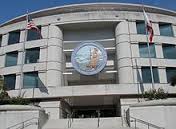California Public Utilities Commission (PUC) has stated that their mandatory controlled substance and alcohol testing program will not be affected by new California law (AB 2188) which restricts employers from testing for marijuana using urine or hair. Marijuana testing in the PUC program will continue and shall be consistent with DOT 49 Part 40 regulations or DOT Like requiring urine testing for marijuana and other drugs.
Drug & Alcohol Testing Programs are available for California PUC licensed Limousine and Transportation Network Companies … Drug & Alcohol Testing Program Required by California PUC
The California Public Utilities Commission (PUC or CPUC) regulates for-hire passenger carriers, such as limousines, airport shuttles, and charter bus companies both PSC and TCP’s in the state. Program requirements are set forth in Commission Resolutions TL-18716 and TL-18760. Included are requirements for pre-employment, random and post-accident testing of drivers, employee education, and supervisor training. Applicants for PSC or TCP operating authority must provide for a mandatory controlled substance and alcohol testing program as adopted by the Commission pursuant to Public Utilities Code Sections 1032.1 and 5374(a)(2) and b)(1)(I).
General Order 157
General Order 158
49 CFR Part 40
49 CFR Part 382
Operating Authority
PSC – provides transportation service to the general public on an individual-fare basis. Most PSCs operate a fixed route, scheduled service, or an on-call, door-to-door airport shuttle-type service.
TCP – Charter-Party Carrier
TNC – Transportation Network Company
TCP drivers are prohibited from consuming or being under the influence of drugs or alcohol while on duty. (GO 157-D, Rule 5.04). TCP drivers operating vehicles with a seating capacity of 16 persons or more, including the driver, are covered by federal Department of Transportation drug testing rules. TCP drivers operating vehicles with a seating capacity of 15 persons or fewer, including the driver, are covered by the CPUC’s drug-testing program, which is based on federal law and which establishes requirements including pre-employment testing, post-accident testing, reasonable suspicion testing, follow-up testing, and return-to-duty testing.
TNCs must implement and disclose a zero-tolerance policy with respect to drivers’ use of intoxicating substances. TNCs must disclose to riders how to report a driver suspected of being under the influence of intoxicating substances, and must suspend a driver promptly after a zero-tolerance complaint is filed.
All applicants for charter-party carrier and passenger stage corporation authority must provide for a drug testing program which includes educational materials for their drivers, training for supervisors and specified drug and alcohol testing of drivers. Applicants who will employ drivers to operate vehicles seating 16 persons or more are required to comply with the federal regulations.
National Drug Screening provides drug and alcohol testing services for employers regulated under Title 49, Code of Federal Regulations (49 CFR), Part 382 AND also for employers not specifically regulated by the Federal Motor Carrier Safety Administration (FMCSA) but required by the California PUC to maintain a drug and alcohol testing program.
If you are regulated by DOT – FMCSA, you follow the FMCSA Program.
If you are not regulated by DOT (15 persons or fewer, including the driver), you need the specific PUC program which is Non-DOT. This program is substantially similar to federal drug testing regulations often called DOT Like..
ORDER TODAY THE CALIFORNIA PUC COMPLIANT DRUG & ALCOHOL TESTING PROGRAM







